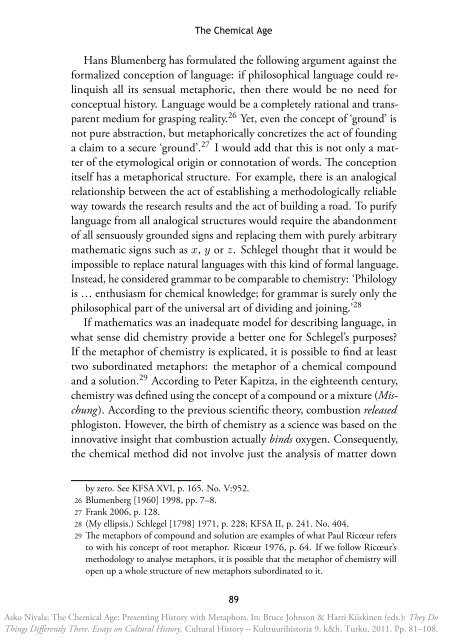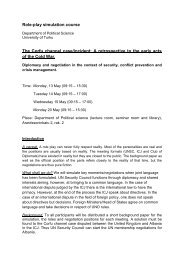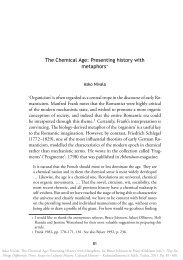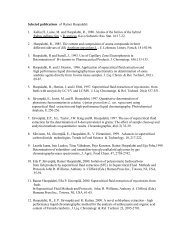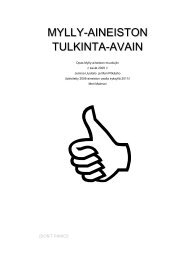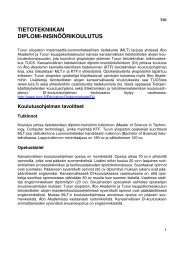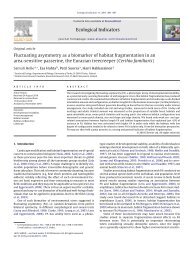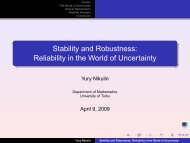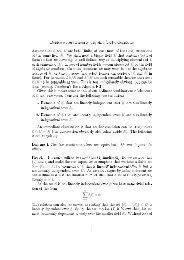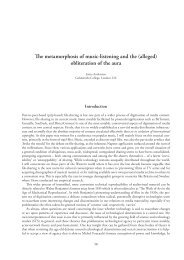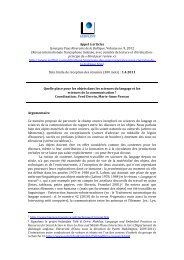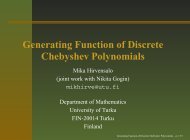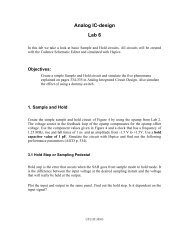The Chemical Age: Presenting history with metaphors∗
The Chemical Age: Presenting history with metaphors∗
The Chemical Age: Presenting history with metaphors∗
You also want an ePaper? Increase the reach of your titles
YUMPU automatically turns print PDFs into web optimized ePapers that Google loves.
<strong>The</strong> <strong>Chemical</strong> <strong>Age</strong>Hans Blumenberg has formulated the following argument against theformalized conception of language: if philosophical language could relinquishall its sensual metaphoric, then there would be no need forconceptual <strong>history</strong>. Language would be a completely rational and transparentmedium for grasping reality. 26 Yet, even the concept of ‘ground’ isnot pure abstraction, but metaphorically concretizes the act of foundinga claim to a secure ‘ground’. 27 I would add that this is not only a matterof the etymological origin or connotation of words. <strong>The</strong> conceptionitself has a metaphorical structure. For example, there is an analogicalrelationship between the act of establishing a methodologically reliableway towards the research results and the act of building a road. To purifylanguage from all analogical structures would require the abandonmentof all sensuously grounded signs and replacing them <strong>with</strong> purely arbitrarymathematic signs such as x, y or z. Schlegel thought that it would beimpossible to replace natural languages <strong>with</strong> this kind of formal language.Instead, he considered grammar to be comparable to chemistry: ‘Philologyis … enthusiasm for chemical knowledge; for grammar is surely only thephilosophical part of the universal art of dividing and joining.’ 28If mathematics was an inadequate model for describing language, inwhat sense did chemistry provide a better one for Schlegel’s purposes?If the metaphor of chemistry is explicated, it is possible to find at leasttwo subordinated metaphors: the metaphor of a chemical compoundand a solution. 29 According to Peter Kapitza, in the eighteenth century,chemistry was defined using the concept of a compound or a mixture (Mischung).According to the previous scientific theory, combustion releasedphlogiston. However, the birth of chemistry as a science was based on theinnovative insight that combustion actually binds oxygen. Consequently,the chemical method did not involve just the analysis of matter downby zero. See KFSA XVI, p. 165. No. V:952.26 Blumenberg [1960] 1998, pp. 7–8.27 Frank 2006, p. 128.28 (My ellipsis.) Schlegel [1798] 1971, p. 228; KFSA II, p. 241. No. 404.29 <strong>The</strong> metaphors of compound and solution are examples of what Paul Ricœur refersto <strong>with</strong> his concept of root metaphor. Ricœur 1976, p. 64. If we follow Ricœur’smethodology to analyse metaphors, it is possible that the metaphor of chemistry willopen up a whole structure of new metaphors subordinated to it.Asko Nivala: <strong>The</strong> <strong>Chemical</strong> <strong>Age</strong>: <strong>Presenting</strong> History <strong>with</strong> Metaphors. In: Bruce Johnson & Harri Kiiskinen (eds.): <strong>The</strong>y DoThings Differently <strong>The</strong>re. Essays on Cultural History. Cultural History – Kulttuurihistoria 9. k&h, Turku, 2011. Pp. 81–108.89


